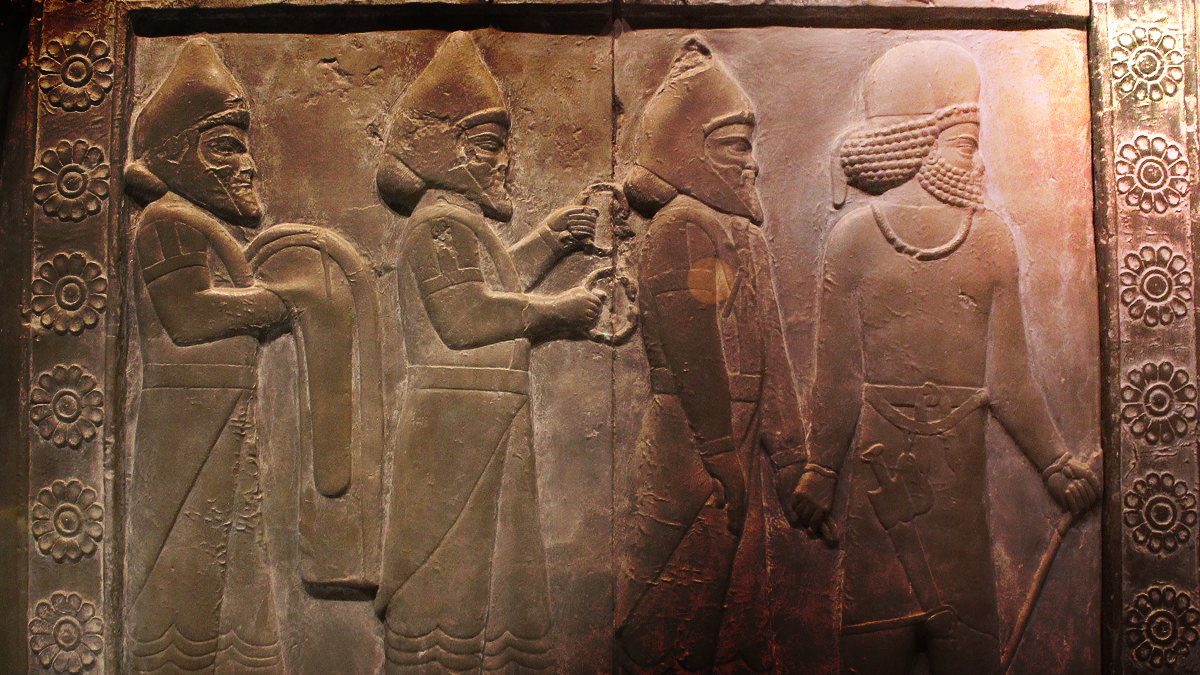Article (Page 8)
Basic Facts from Habakkuk
Habakkuk is one of the most lyrically-beautiful books in all the bible. In Hebrew it is a beautiful poem that records both the prophet’s conversation with God about why evil has been allowed to continue among His people for so long (chapters 1-2), and a glorious description of God’s majesty (chapter 3). The last chapter reads much like a psalm, and forms an acrostic in Hebrew, which aid in memorizing it. The prophet Habakkuk was a contemporary of Jeremiah, and…
Basic Facts from Nahum
Nahum’s three short chapters are the “sequel” to the dramatic events recorded in the book of Jonah. In that reluctant prophet’s day (circa 750 B.C.), the Assyrian inhabitants of Nineveh –from the king down to the beggar in the street –had repented because of Jonah’s message of impending judgement. Because they did, God spared them and the Assyrian Empire remained strong for almost another century. At the end of that time God began to raise up the Babylonian Empire, which…
Basic Facts from Micah
Micah prophesied at about the same time as the prophet Isaiah (8thcentury B.C.), and his message was very similar to Isaiah’s. Israel and Judah were both enjoying a period of relative prosperity, but the idolatrous northern kingdom of Israel was doomed to be conquered by the Assyrians in 721 B.C. Judah would be oppressed and made to pay tribute to the Assyrians, but would not be conquered by them. Micah’s prophetic writing alternates between warnings of judgement and destruction and…
Basic Facts from Jonah
According to 2 Kings 14:23-25, Jonah preached during the time of Jehoahaz and Jereboam II, around the year 780 B.C. Verse 25 shows that he also prophesied in Israel as well as in Nineveh. Jonah came from Gathhepher, a little town about four miles northwest of Nazareth in Galilee. This is important because in Jesus’ day the Jews and their leaders recognized Jonah as a great prophet, and his origin contradicts the Pharisees’ assertion in John 7:52 that “no prophet…
Basic Facts from Obadiah
Obadiah means “servant of Jehovah,”and there are a number of men in the old testament by this name, including one godly man who was a servant to the wicked king Ahab. This man hid one hundred prophets in a cave when Queen Jezebel was trying to murder them (1 Kings 18:3-16). There is no way to know if this is the man who penned the book of this name, for the Bible says nothing about him; no family name, no…
Basic Facts from Amos
Amos was a shepherd of Tekoa (in Judah, slightly south of Bethlehem) who was called to prophesy primarily to the Northern Kingdom of Israel. He lived about 800 years before Jesus, during the reigns of Uzziah (in Jerusalem) and Jeroboam the second (in Damascus), during a time of comparative prosperity when both Israel and Judah were “gorging” themselves on evil deeds. His sharp words of warning and impending judgement were not welcomed in Israel. Eight times in chapters one and…
At Last!
Aren’t you glad to see the end of this year? I suspect most people will be happy to put 2020 in the rearview mirror! We have learned new words (pandemic, coronavirus, etc.), new habits (social distancing, masking, compulsive hand sanitizing), and in some cases, new attitudes (“mask-shaming”). This year brought a lot of unfamiliar stresses into our lives –quarantining, hospitalizations, working from home, even the deaths of friends and loved ones. Social and political tensions have been “through the roof”…
Basic Facts from Joel
Not much is known about the prophet Joel. It appears that he prophesied to the southern kingdom of Judah, since his prophecy is directed toward the “elders” and priests. Neither is there any mention of either Israel (the northern kingdom) or the Assyrian Empire, which was the dominant nation during Joel’s lifetime. Joel’s prophecy begins with the warning of a coming plague of locusts; this plague is destined to destroy the nation’s crops and plunge the people into famine and…
Basic Facts from Hosea
The very last of God’s prophets to speak to the apostate northern kingdom of Israel, Hosea is sometimes called the “death-bed prophet of Israel.” As the ten idolatrous northern tribes neared their rendezvous with Divine punishment at the hands of king Sennacherib and his Assyrian Empire, Hosea warned of the destruction coming upon them because of their faithlessness. His message was vividly illustrated by the behavior of his own wife – Gomer was as shamelessly unfaithful to him as Israel…
Basic Facts from Daniel (Part 5)
The last chapters of Daniel’s inspired writing present some of the most exciting information anywhere in the bible! Here the Holy Spirit lays out a “panorama” of the events and empires that would exist between Daniel’s time and the coming of the Messiah. These chapters show the rise of Alexander the Great (chapter 8), the division of his empire after his death (chapters 10-11), a “window” of Jewish freedom under the Maccabees (chapter 11), and the eventual rise of the…
Basic Facts from Daniel (Part 4)
For children who grow up attending Bible classes, “Daniel in the lions’ den” may be THE best-known “story” in the entire bible; and the best part is that it’s true– it really happened! We can draw many practical lessons from Daniel’s experience, but surely the primary lesson to learn is that God’s faithful saints are safe even when we are being persecuted. Even though he faithfully served several Babylonian rulers, when the Medo-Persian empire conquered Babylon the new ruler –…
Basic Facts from Daniel (Part 3)
One of the most fascinating events in Daniel is what God does to show king Nebuchadnezzar that he is NOT the greatest, most powerful being in the world! Chapter 4 is actually the king’s own record of what God did to him! As in chapter 2, the king had been troubled by a dream and sent for Daniel to interpret it. The dream – of a mighty tree being cut down to a stump – represents God humbling Nebuchadnezzar because…











